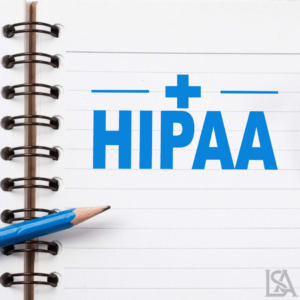Healthcare Planning Should Be Part of a Young Adult’s Estate Plan
In a recent blog post, we discussed why young adults should consider an estate plan before heading off to college. Among the essential tools we highlighted are a HIPAA authorization and a medical power of attorney. While no one likes to think about medical emergencies, being prepared provides young adults and their families with reassurance as they take their first steps into adulthood. Here’s why healthcare planning with these tools should be part of every young adult’s estate plan:

Understanding HIPAA
The Federal Health Insurance Portability and Accountability Act of 1996 (HIPAA, for short) safeguards patients’ information, including any identifiable information about health, treatment, or payment for healthcare services. It’s important to note that legal guardians of minors can access their children’s medical information. However, once a legal adult, at the age of 18, hospitals and physicians’ offices must protect that individual’s medical information under HIPAA. In today’s world, many 18-year-olds are just in the beginning phases of leaving the nest and may still need guidance.
HIPAA Authorization Form
For this reason, young adults should consider preparing the proper documentation so that their parents or other trusted individuals can access their medical records and communicate with healthcare practitioners on their behalf. One such document is a HIPAA authorization form, which allows the young adult to name specific people to receive their medical information. Including this important authorization as part of an estate plan is a proactive way to provide peace of mind for both the young adult and their family that they will be in the loop if a medical issue arises.
Medical Power of Attorney
Alongside the HIPAA authorization form is a medical power of attorney, which allows someone to make medical decisions on the patient’s behalf should they be unable to do so. (The HIPAA authorization only provides access to information, not decision-making authority.) Without a medical power of attorney in place, California law includes default surrogate statutes that assign the patients a healthcare decision-maker when no healthcare agent has been appointed; typically, this is a parent. However, the surrogate chosen by the law may not align with the young adult’s preferences. Further, tension may arise within the family if there is disagreement about the patient’s care.
Plan Ahead with Law Stein Anderson
Estate planning for young adults encompasses more than just finances—it’s about equipping them with the right tools to manage unexpected healthcare situations. Creating a comprehensive estate plan allows young adults to maintain control over their healthcare while simultaneously giving their families peace of mind. Working with an experienced estate planning attorney makes all the difference, and we are here to offer expert advice as young adults step into their own. Schedule your complimentary consultation today.
